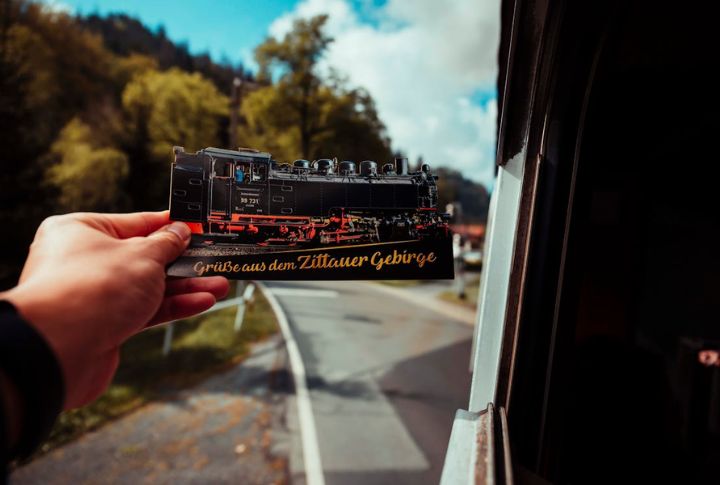15 Simple Tricks To Pick Better Travel Keepsakes

You landed the trip of your dreams, only to return with a suitcase full of “why did I buy this?” moments. Souvenir regret is real, but totally avoidable. With a little strategy and some local savvy, you can bring home stories, not stuff you’ll hide in a drawer.
Shop Where Locals Go, Not Tourists

Tourist shops may look tempting, but most of their items aren’t made locally. For authentic, regionally crafted goods at better prices, head to local markets and neighborhood stores. Even everyday shops frequently offer more charm and true cultural flavor than flashy airport kiosks.
Brush Up On Simple Local Language Terms

Learn a few phrases before you shop—especially greetings and pricing words. Local vendors respond better when travelers make the effort. It builds trust and can lead to real savings. In fact, saying “hello” in Thai works wonders at Bangkok’s floating markets. And a bit of Arabic in Morocco might lead you past the tourist stalls.
Look For Items With A Cultural Backstory

Meaning gives souvenirs their staying power. Seek out items woven into a place’s story, something created for ritual or rooted in belief. Balinese masks aren’t just decor; they represent deities and tradition, and Mexican alebrijes come from legends and dreams. When a souvenir tells a tale, it carries the spirit of the culture home.
Shop Early In The Day For Better Selection

Want first pick and fewer elbows? Go early. Morning hours mean fresh stock, fewer tourists, and sellers who aren’t rushing. You’ll often find rare pieces that disappear by noon. Plus, artisans have more time to chat, share stories, and help you find something meaningful without the mid-day frenzy.
Ask Hotel Staff Or Hosts For Recommendations

Want to find authentic souvenirs without the guesswork? Hotel staff and local hosts are often reliable sources. They typically know where to find quality items at fair prices and may point you toward local workshops or family-run stores you’d otherwise miss. A quick conversation might lead to souvenirs with real meaning.
Avoid Souvenirs That Require Customs Declarations

Before purchasing souvenirs, familiarize yourself with your home country’s import regulations. Some goods, such as coral jewelry, wooden carvings, seeds, or alcohol, can be restricted or prohibited. Knowing these rules prevents losing your purchases or facing delays, especially because customs officers can be strict about certain products.
Check For Artisan Certifications Or Seals

Always check for official artisan labels before buying. Countries like Mexico use seals like “Hecho a Mano” to highlight traditional artistry. India’s GI tag connects goods to specific regions, for example, Banarasi silk. These markings confirm authenticity and help support genuine local artisans, not mass-market knockoffs.
Compare Prices At Multiple Shops Before Buying

Souvenir prices can vary widely even within the same area. Comparing several shops allows you to avoid tourist markups and spot quality differences. In many markets, prices aren’t fixed, and bargaining is common. Taking the time to visit multiple stores typically leads to better value and a smarter purchase.
Ask If Packaging Is Available For Fragile Goods

Before purchasing delicate items, inquire about the available packaging options. Shops that provide free wrapping or padding help protect your item in transit. Fragile pieces often need to be carried on board, so secure packing makes all the difference. It also shows the vendor handles exports with care and experience.
Buy Items Directly From The Artisan When Possible

Purchasing straight from the creator helps sustain local craftspeople and adds a deeper connection to your souvenir. Watching how a piece is made, whether it is paper, textiles, or pottery, gives you insight into rich traditions. Hearing the artisan’s story further makes your keepsake more meaningful and unforgettable.
Buy Something You’ll Actually Use

Functional souvenirs tend to be the most memorable because they serve a purpose while reminding you of your trip. Japanese furoshiki cloths can be worn or used as bags, and Portuguese ceramic tiles make great coasters. These items reduce clutter and offer lasting value beyond decoration.
Photograph The Artisan With Your Souvenir

Snapping a photo with the person who made your souvenir adds something special. It’s not just proof—it’s personal. Most artisans are proud to show off their creations and happy to pose. Later, that picture helps jog your memory and reminds you exactly where your keepsake came from.
Buy Regional Stamps, Currency, Or Transit Cards

Small collectibles like local currency or transit cards make great souvenirs. They’re affordable, easy to carry, and frequently reflect a country’s culture or pride. Many even showcase artwork or symbols unique to the region or local wildlife. Since these items are usually limited, it’s best to pick them up before they’re gone.
Research Souvenir Scams In Advance

Nobody wants to return home and find out their “stone” statue is actually molded resin. A little pre-trip digging into common souvenir scams can help you avoid that kind of letdown. In many places, tourists have unknowingly bought “silk” scarves made of polyester. Being informed helps you shop smarter and skip the regret.
Choose Souvenirs Tied To Local Food Culture

Edible souvenirs are usually some of the best keepsakes. Whether it’s a regional sweet or a unique local snack, these treats not only taste great but are also easy to pack. They make perfect gifts and let you share a bit of your travel experience through flavor.






